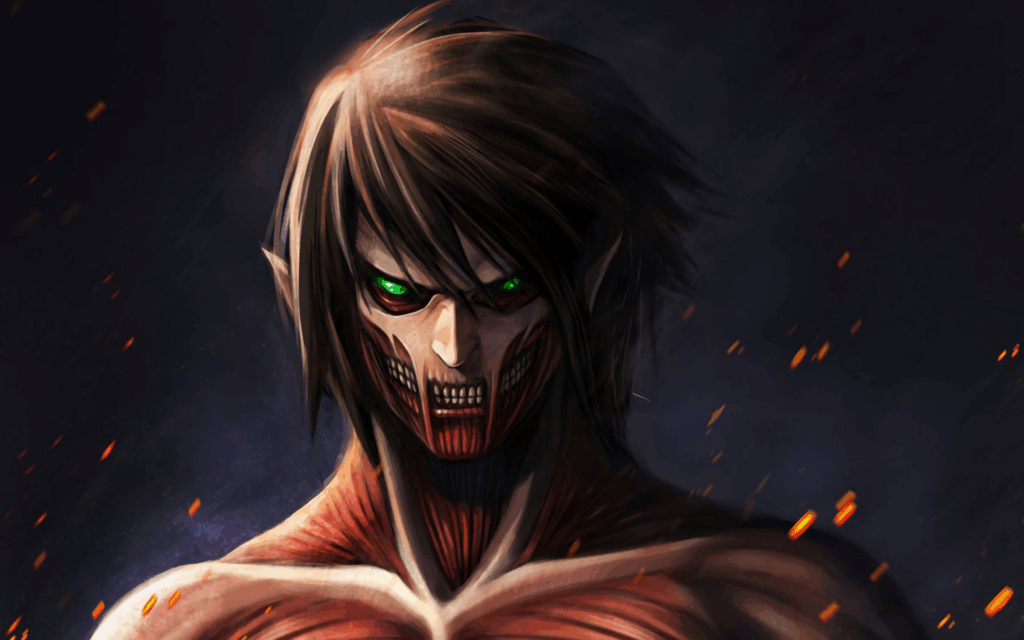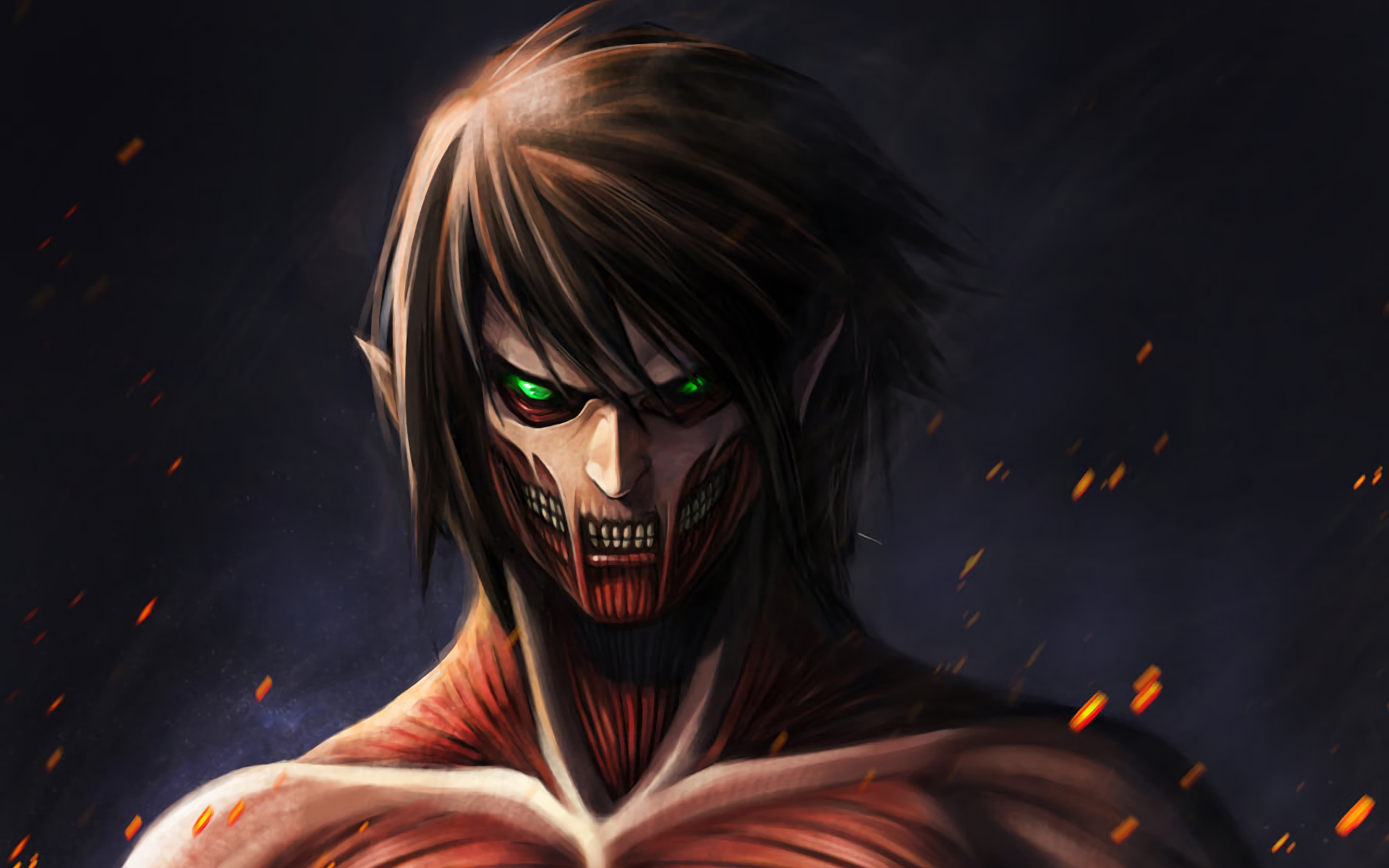
Eren Yeager: Unraveling the Complexities of Attack on Titan’s Protagonist
Eren Yeager, the central character of the globally acclaimed anime and manga series Attack on Titan, is far from a simple hero. His journey from a vengeful child seeking to eradicate the Titans to a figure shrouded in ambiguity and moral complexity has captivated and divided audiences worldwide. This article delves into the multifaceted character of Eren, examining his motivations, evolution, and the profound impact he has had on the world of Attack on Titan.
The Boy Who Hated Titans
Eren‘s initial motivation is straightforward: revenge. After witnessing the horrific death of his mother at the hands of a Titan, he vows to eliminate every single one of them. This burning desire fuels his determination to join the Survey Corps, the branch of the military dedicated to fighting Titans beyond the walls. Early on, Eren is portrayed as impulsive and headstrong, often rushing into danger without fully considering the consequences. He embodies the raw, untamed spirit of humanity’s fight for survival.
His ability to transform into the Attack Titan gives him a unique advantage, making him a valuable asset to the Survey Corps. However, this power also comes with its own set of challenges. Eren struggles to control his Titan form, often losing himself to its primal instincts. This internal conflict highlights the duality within him – the human desire for revenge clashing with the monstrous power he wields.
The Revelation of the Truth
As the series progresses, Eren and his comrades uncover the shocking truth about the Titans and the world beyond the walls. They learn that humanity is not confined to the island of Paradis, but that there is a vast world outside, filled with other nations and civilizations. They also discover that the Titans are not mindless monsters, but rather Eldians, descendants of Ymir Fritz, who have been transformed by the Marleyan government as a form of punishment and control.
This revelation profoundly impacts Eren, shattering his naive worldview. He realizes that the Titans are not the root of all evil, but rather victims of a larger conflict. This knowledge fuels a shift in his motivations, leading him down a darker and more complex path.
The Descent into Darkness
Following the discovery of the truth, Eren becomes increasingly detached and brooding. He begins to question the values and beliefs he once held dear, grappling with the moral implications of the ongoing war. His interactions with the outside world further solidify his belief that Paradis is under threat and that drastic measures are necessary to ensure its survival.
Eren‘s actions become increasingly controversial, leading to conflict with his friends and allies. He infiltrates Marley, launching a surprise attack that results in numerous civilian casualties. This act of aggression sparks outrage and condemnation, further isolating him from those he once trusted. His methods become increasingly ruthless, blurring the lines between hero and villain. [See also: Attack on Titan Season 4 Review]
The Rumbling and the Ultimate Sacrifice
Driven by his desire to protect Paradis, Eren unleashes the Rumbling, a cataclysmic event that involves the release of millions of Colossal Titans who march across the world, destroying everything in their path. This act of genocide is intended to eliminate all threats to Paradis, but it also comes at a tremendous cost. Millions of innocent lives are lost, and the world is plunged into chaos.
The Rumbling forces Eren‘s former comrades to confront him, leading to a final, devastating battle. In the end, Eren is defeated, but his actions ultimately lead to the end of the Titan curse and the possibility of peace between Eldians and the rest of the world. His final act, though horrific, is framed as a sacrifice, a necessary evil to break the cycle of hatred and violence.
Analyzing Eren’s Motivations
Understanding Eren‘s motivations requires a nuanced perspective. He is not simply a hero or a villain, but rather a complex character driven by a combination of factors, including revenge, a desire for freedom, and a deep-seated fear for the future of his people. His actions, while often morally reprehensible, are rooted in a desire to protect those he cares about.
Some argue that Eren‘s actions are justified, given the circumstances he faced. They believe that he was forced to make difficult choices in order to ensure the survival of Paradis. Others condemn his actions as unforgivable, arguing that no amount of justification can excuse the mass murder he committed. Ultimately, the interpretation of Eren‘s character is left to the individual viewer or reader.
The Impact of Trauma
The trauma that Eren experiences throughout his life profoundly shapes his character. Witnessing his mother’s death, enduring constant threats from Titans, and learning the devastating truth about the world all contribute to his growing sense of despair and disillusionment. This trauma fuels his rage and his determination to fight back against the forces that seek to destroy him and his people. [See also: The Psychological Impact of War in Attack on Titan]
The Burden of the Founding Titan
Eren‘s possession of the Founding Titan grants him immense power, but it also burdens him with the memories and the will of those who came before him. This burden weighs heavily on him, influencing his decisions and shaping his perception of the world. The Founding Titan’s power allows him to see the past, present, and future simultaneously, further complicating his understanding of cause and effect.
The Question of Free Will
A central theme in Attack on Titan is the question of free will. Eren grapples with this question throughout the series, wondering whether his actions are truly his own or whether he is merely a puppet of fate. The power of the Founding Titan and the influence of past inheritors raise doubts about the extent to which Eren is in control of his own destiny. This ambiguity adds another layer of complexity to his character.
Eren Yeager: A Legacy of Debate
Eren Yeager’s character remains a subject of intense debate and discussion among fans of Attack on Titan. He is a flawed and complex protagonist who challenges viewers to confront difficult questions about morality, justice, and the nature of freedom. His journey from a vengeful child to a morally ambiguous figure is a testament to the power of storytelling and the enduring appeal of characters who defy easy categorization. Whether he is ultimately seen as a hero or a villain, Eren Yeager’s impact on the world of Attack on Titan is undeniable. His actions have shaped the course of history, and his legacy will continue to be debated and analyzed for years to come. The character of Eren is a masterclass in creating compelling narratives. He embodies the struggle between hope and despair, showcasing the darkest and brightest aspects of humanity. The story of Eren is both a warning and a testament to the enduring human spirit. Eren’s transformation is a key element of the series. The conclusion of Eren’s story is deliberately ambiguous. The journey of Eren is fraught with peril. Eren makes a drastic choice. The motivations of Eren are complex. Eren is the catalyst for change. The story revolves around Eren and his actions. Eren is a controversial character. This is the story of Eren Yeager.

